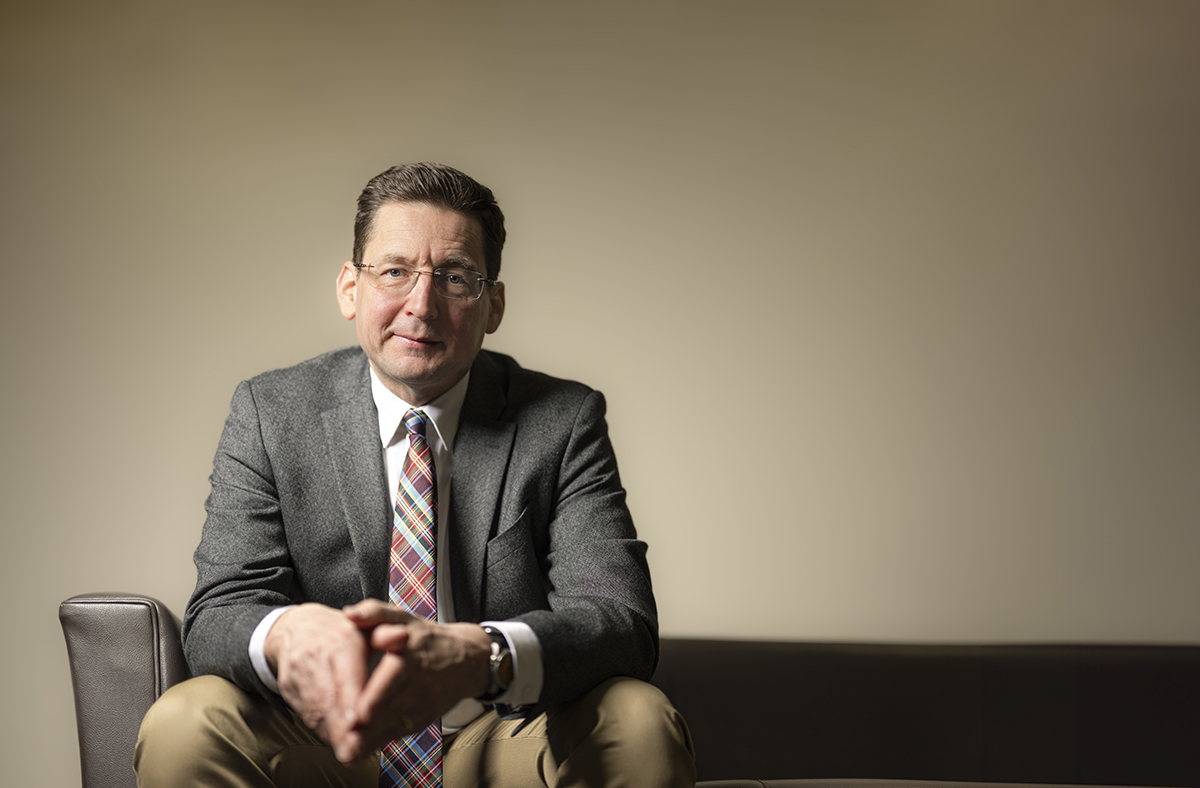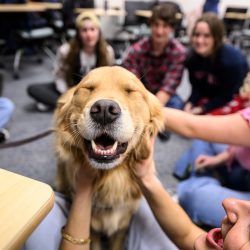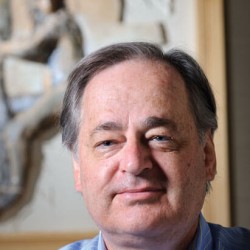“Here, You Need to Listen”
The UW’s Center for Interfaith Dialogue teaches students to get along despite their differences.
UW–Madison launched the Center for Interfaith Dialogue last year — and not a minute too soon, given the onset of the Israel–Hamas war. Though it had been in the works for a while, the center opened just as the university urgently needed a place where students from different religious backgrounds could get to know one another and engage in civil dialogue. Interim director Ulrich Rosenhagen envisioned a program in which undergraduates serve as “interfaith fellows,” educating themselves about religious traditions while fostering a spirit of understanding in the UW community. He wants them to graduate with the skills to live amicably with fellow citizens, even amid disagreements.
Does that sound like an impossible dream at this turbulent moment? The Center for Interfaith Dialogue plans to make it a reality.
The center is a successor of the UW Center for Religion and Global Citizenry and the Lubar Institute. What is the current mission?
One of the core ideas is to have a learning community with students of different religious and nonreligious backgrounds, including religious minorities. They learn together and get to know each other, and then they serve on campus as ambassadors-at-large for interfaith matters.
What do students get out of the experience?
As a big public university, we have a mission to form responsible citizens. They need to have four years after high school to go out and see how they can contribute to society, function in a democracy, and manage diversity. Student Affairs invested in this effort by starting the Center for Interfaith Dialogue.
How does the program work?
Ten to 15 students meet for a full year, hopefully stay together even when times get rough, and learn to accept each other. On social media, people don’t listen anymore, but here, you need to listen. You can’t just dominate the conversation. And that’s a learning process.
In the first semester, we build trust and form community. The next stage is religious literacy, because interfaith dialogue only works when you know a bit about other practices and convictions. Your peers share their traditions and how they make sense of the world. Then second semester starts with visiting different worship spaces and exploring contemplative practices so students can experience other traditions in the safety of the group. Finally, they have to run events on campus, like interfaith storytelling or an interfaith conference.
So when the students graduate, they’re ready for interfaith leadership.
What role did the center play when the Israel–Hamas war broke out?
We created a faith-leaders advisory board, which is a diverse group of people who work with students. We got them talking to each other after October 7 and came up with an important statement that reflected on civil engagement without harming each other. And that was very helpful.
I know of parents on either side who have called the dean of students and asked, “Is my child safe?” There is a lot of concern, and we need to find ways to bring together the different student groups with their very different perspectives on what’s happening in the Middle East. The center is holding a shared space for the students.
At stressful moments, how can campus balance freedom of speech with a sense of belonging?
The First Amendment is one of the great accomplishments of civilization, but if free speech means that we dominate conversations with no concern for what holds us together as a community, then we need to readjust this approach. Often, it’s the better choice not to provoke and not to push. That might be different for different people. But I think our insistence on First Amendment rights is moving us toward exhaustion. If we just take a deep breath, listen, maybe not use social media constantly, we’ll have more time to digest. And if students can learn this during their four years here, that’s a big step.
What will it take to learn that lesson?
Students have safe spaces on campus that allow them to freely be themselves. This is important. But as a larger community, we also need to learn how to work through different perspectives and disagreement. The center wants to create a safe space for students to express themselves while also training them to engage in conversations across differences.
How will UW–Madison — and the world — benefit when that happens?
Campus is a diverse community, and it’s all very fragile. This is not a factory to produce engineers. It’s a vibrant space that reflects society and culture. The diversity we have here is the diversity we have in America. Universities are trying to model a way to interact with each other and live together as a community, despite our disagreements.
We tend to lack the institutions that train people to be a little more civilized. And I think we have an opportunity to do precisely that with our students at the Center for Interfaith Dialogue.
Published in the Summer 2024 issue




Comments
Ellen Ratnet June 3, 2024
So well thought out and spoken!
Mark Landmark June 7, 2024
It seems this program would have great benefits for the general population/society, if say spread through the UW Extension.
Michael Chimberoff June 11, 2024
It’s ironic that the purpose of this effort is to bring people together and at the same time you refer to an “Israel-Palestine” war in the first sentence. Israel is fighting Hamas, a terrorist organization, not Gaza or innocent civilians who live there.